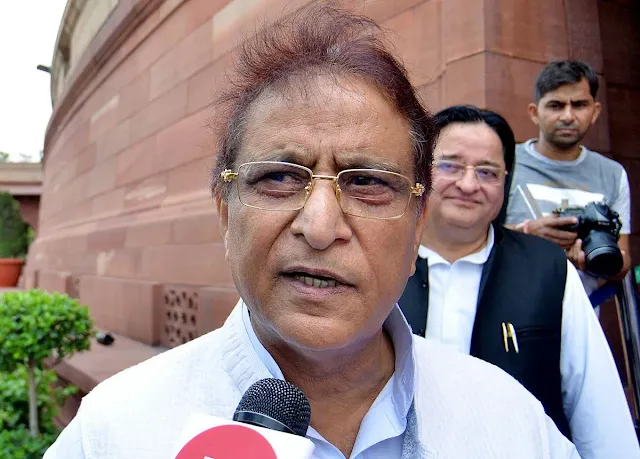In a case marked by political sensitivity and legal complexity, the Allahabad High Court has extended its stay on the pronouncement of the final order in the 2016 forced eviction trial involving senior Samajwadi Party leader and former cabinet minister Mohammad Azam Khan. The extension comes amidst growing concerns about procedural fairness and judicial conduct, as the case continues to raise pressing questions about due process, witness rights, and the pace of trial proceedings.
The case dates back to October 2016, when multiple structures were reportedly demolished at the Waqf property known as Yateem Khana in Rampur. These demolitions allegedly took place under the direction or involvement of Azam Khan and several others. While the original incident occurred years ago, a series of twelve First Information Reports (FIRs) were registered between 2019 and 2020. The charges ranged from dacoity and criminal trespass to conspiracy and other offenses under the Indian Penal Code. In 2024, all FIRs were consolidated into a single case being tried before a Special Judge in Rampur, designated for matters concerning Members of Parliament and Members of the Legislative Assembly.
Recently, there were signs that the trial court intended to deliver a final order in the matter before the end of June. This development prompted co-accused Mohammad Islam, also known as Islam Thekedar, and others to approach the Allahabad High Court. They contended that the trial court’s urgency and unwillingness to consider critical supplementary petitions reflected a rigid approach that could undermine the rights of the accused. Responding to this, the High Court, through Justice Dinesh Pathak, issued an interim order allowing the trial to proceed but restraining the trial court from pronouncing any final judgment until further review.
The matter took a further procedural turn when Azam Khan and his associate, Virendra Goel, separately petitioned the High Court after the trial court denied their request to recall key prosecution witnesses. Among them was Zafar Ahmad Farooqui, Chairman of the Sunni Central Waqf Board. The petitioners also sought the court’s permission to submit alleged video evidence that they claim proves they were not present at the location during the time of the demolition. However, the trial court had rejected these requests, sparking concerns that important exculpatory evidence was being ignored.
The High Court acknowledged the serious procedural implications of these complaints and decided to link the petition filed by Azam Khan and his co-accused with the earlier matter. The court scheduled both petitions for a consolidated hearing on July 15. Until that date, the stay on the pronouncement of the final order will continue, ensuring that no conclusive judgment is issued without the High Court’s review of the pending applications and evidence-related concerns.
The essence of the High Court’s intervention lies in maintaining procedural integrity. While it did not interfere with the ongoing trial process itself, the court made it clear that delivering a final verdict without allowing the accused the opportunity to recall witnesses or present additional evidence would be premature. The court emphasized that in matters involving public figures and multiple FIRs, it is crucial to ensure every accused receives a fair opportunity to defend themselves.
The delay in final judgment thus serves as a safeguard against what could potentially become a rushed conclusion to a complex and politically charged case. It allows the defense additional time to press its arguments regarding the necessity of recalling witnesses and examining the validity and admissibility of new evidence. For the judiciary, it reinforces the importance of procedural diligence over swift resolution, particularly when public confidence in the judicial process is at stake.
The July 15 hearing is expected to play a decisive role in determining the future course of this trial. The High Court will have to weigh whether the accused were justifiably denied the chance to strengthen their defense and whether the trial court’s refusal to allow such procedural steps amounts to a miscarriage of justice. The decision will also reflect on how courts manage politically sensitive trials and the extent to which judicial oversight must be exercised to preserve the integrity of due process.
In conclusion, the Allahabad High Court’s decision to extend the stay until mid-July is not just about delaying a verdict. It signifies a broader judicial effort to ensure that the case proceeds with complete fairness, transparency, and respect for legal rights. As the case progresses, it will remain a key example of the judiciary’s responsibility to balance speed with justice—particularly when the stakes are as high as in this trial involving a prominent political figure like Azam Khan.










0 Comments
Thank you for your response. It will help us to improve in the future.